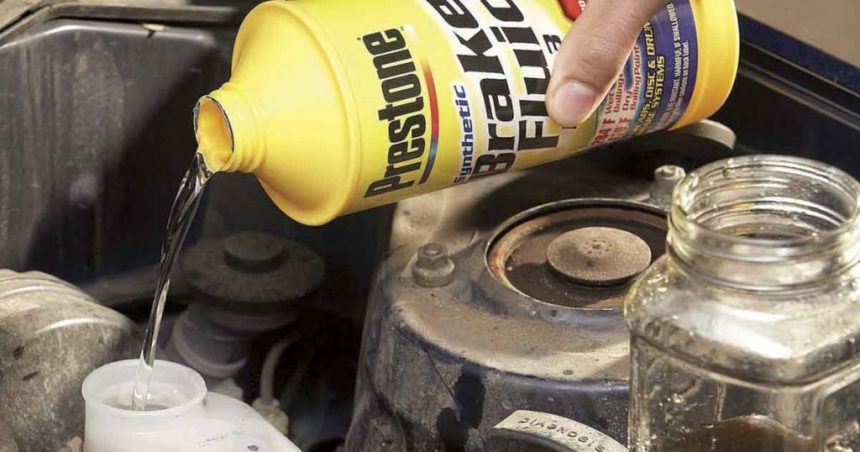Cars play a significant role in our daily lives, providing us with the convenience of transportation. To ensure your vehicle remains in optimal condition, it’s essential to avoid certain practices that can lead to costly repairs and a shorter lifespan for your car. In this article, we will discuss 15 things you should never do to your car, along with explanations and tips to help you maintain your vehicle’s performance.
1. Using the Wrong Coolant/Antifreeze
Selecting the correct coolant is crucial for your car’s engine and cooling system. Mixing different types of coolant or using the wrong one can result in corrosion and premature failure of essential components. Refer to your owner’s manual to find the appropriate coolant for your vehicle.
2. Overfilling Your Tires
Inflating your tires beyond the recommended pressure levels can have negative consequences. Over-inflated tires can impact your car’s handling, create a rough ride, and wear out suspension parts faster. Follow the recommended tire pressure for optimal performance.
3. Disconnecting a Battery Cable to Check Your Alternator
Modern vehicles no longer require disconnecting a battery cable to check the alternator. This outdated practice can cause damage to the electronics in newer cars. Use a volt meter or seek a free charging system diagnostic test instead.
4. Driving On Less Than a Quarter Tank
Regularly driving with less than a quarter tank of gas can lead to premature wear on the fuel pump. Keep your fuel system healthy by maintaining the tank above the quarter mark.
5. Avoiding Aggressive Driving
Driving aggressively by slamming on the gas and brakes can cause excessive wear on your vehicle, affecting its longevity and fuel efficiency negatively. Drive smoothly to preserve your car’s performance.
6. Confusing Brake Fluid with Power Steering Fluid
Be cautious when refilling fluids in your car, as mixing up brake fluid and power steering fluid can result in severe consequences. Always double-check and use the correct fluids to prevent costly repairs.
7. Using “All Encompassing” Fluids
While universal fluids claim to work for all cars, it’s essential to consult your owner’s manual for the specific fluid requirements of your vehicle. Using the correct fluid is crucial for your transmission and power steering system.
8. Avoid Using Dishwashing Detergent to Wash Your Car
Dishwashing detergent may be suitable for dishes but can damage your car’s paint. Use car wash soap designed to clean without stripping protective wax, keeping your car’s finish in excellent condition.
9. Addressing the Oil Light Promptly
When your oil light illuminates, it signals low oil levels or potential engine issues. Ignoring this warning can lead to severe engine damage. Check your oil level immediately and add oil if needed to prevent costly repairs.
10. Not Ignoring Rust Buildup
Rust is a common enemy of vehicles, and ignoring it can be a costly mistake. Address rust promptly to prevent further deterioration and maintain your car’s appearance and structure.
11. Avoid Leaving Beverages in Your Car During Freezing Temperatures
Liquids left in your car during freezing temperatures can freeze and expand, leading to potential messes and container damage. Remove beverages from your car to prevent such situations.
12. Refrain from Smoking While Pumping Gas
Smoking near gas pumps poses a fire hazard due to flammable gas fumes. Follow safety guidelines and avoid smoking or using open flames at gas stations to ensure your safety.
13. Using the Correct Oil Type
Selecting the appropriate engine oil viscosity is crucial for your car’s efficiency. Stick with the oil recommended by your car manufacturer to prevent issues with components like turbochargers and variable valve timing systems.
14. Regularly Checking the Oil Level
Consistently monitoring your oil level and topping it off when necessary helps maintain your engine’s health. Neglecting this routine can lead to premature wear and engine deposits.
15. Avoid Driving Barefoot or With Socks
Operating your vehicle with proper footwear ensures you can apply the necessary force on the pedals, especially in emergencies. Wearing suitable footwear while driving is safer and more effective.
By following these 15 tips and consulting your owner’s manual, you can protect your car’s longevity and avoid expensive repairs. Implementing these straightforward practices will help keep your vehicle in excellent condition, ensuring safer journeys on the road.






